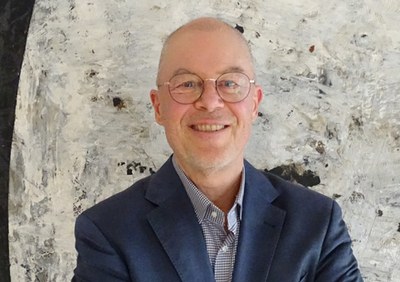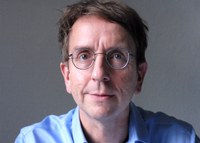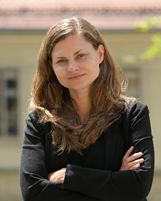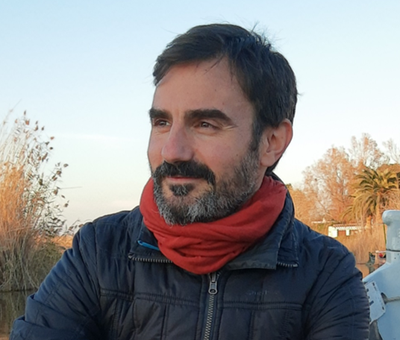Affiliated Scholars
- Gottwald, Franz-Theo
- Grundmann, Philipp
- Hirschfeld, Jesko
- Lange, Steffen
- Otto, Ilona M.
- Schleyer, Christian
- Sieber, Stefan
- Villamayor-Tomas, Sergio
Prof. Franz-Theo Gottwald

|
Franz-Theo Gottwald teaches environmental, agricultural, food and bioethics. His publications reflect and discuss the following topics: Guidelines for sustainable development in agriculture and food industry, future of animal husbandry, digitalization and sustainable consumption. Paramount among them are questions of food sovereignty and the new field of urban food governance. |
In his capacity of honorary professor for environmental ethics at the HU Berlin, he has been doing research and teaching in the master's INRM and Agricultural Economics programs since 2001. He focuses on providing a deeper understanding of environmental and bioethics as well as their fields of application, training and strengthening students’ abilities of argumentation and reflection with regard to ethical questions and the analysis of concrete ethical problems and conflicts arising between the protection and use of soil, plants, animals, humans and future generations.
Since Fall 2021 he does no longer provide a complete module on ethics, but serves as lecturer on the above mentioned topics together with his collegues. He also serves in Bachelor-, Master-Thesis and on Ph.D. level as well as a member of the ethic-commission.
He has been director of the Schweisfurth Foundation for thirty years. The Foundation has been dedicated to ethical ways of doing business, and positive support of sustaining life in viable agriculture and food production methods. Additionally, his leadership, advice and trusteeship have been sought by different associations and organizations, f.e. as chair oft he supervisory board oft he World Future Council.
Contact
Prof. Franz-Theo Gottwald
Schützenweg 2 b
82335 Berg
info (at) coevolution.de
Prof. Dr. Jesko Hirschfeld

|
Jesko Hirschfeld is environmental economist at the Institute for Ecological Economy Research (IÖW) in Berlin since 2002. He is leading and working on research projects in inter- and transdisciplinary contexts that analyse the effects of land use, water management and urban planning decisions on biodiversity and ecosystem services, as well as the challenges climate change poses on environmental planning and sectoral policies. Currently he is coordinating research projects on the effects of urban green and blue infrastructures on regulating and cultural ecosystem services, carrying out extended cost-benefit analy- |
ses relying on economic valuation methods to monetarize external environmental effects as well as preferences of stakeholders and the broader public. 2017-2020 he was visiting professor for Environmental and Land Economics at TU Berlin and since January 2022 he is visiting professor for Environmental Economics in the Working Group on Resource Economics at the Albrecht Daniel Thaer-Institute of Agricultural and Horticultural Sciences of the Humboldt-Universität zu Berlin.
Contact
Arbeitsgruppe Ressourcenökonomik
Hannoversche Str. 27, Raum 1.20
10115 Berlin,
T +49-30-2093-46371
jesko.hirschfeld (at) hu-berlin.de
Dr. Steffen Lange

|
Steffen Lange is an economist who combines quantitative and qualitative empirical research with theoretical and conceptual methods to address sustainability issues. His research focuses on digital transformation, the relationship between economic growth and environmental throughput, rebound effects and concepts for sustainable economies. He is senior researcher at the Center of Interdisciplinary Sustainability Research at the University of Münster and affiliated scholar of the Resource Economics Group at the Humboldt |
| University Berlin. Steffen Lange studied economics in Maastricht, Santiago de Chile and Göttingen and received his doctorate from the Faculty of Economics and Social Sciences at the University of Hamburg. Besides publications in international research journals, he is the author of the books "Macroeconomics Without Growth: Sustainable Economies in Neoclassical, Keynesian and Marxian Theories" (Metropolis) and "Smart Green World? Making Digitalization Work for Sustainability" (Routledge). Current information on publications, media reports and other information can be found here. |
|
Contact
Universität Siegen
Fakultät III
Kohlbettstraße 17
D-57072 Siegen
lange (at) wiwi.uni-siegen.de
Dr. rer. agr. Christian Schleyer

|
Christian Schleyer is a specialist in ecological and institutional economics and environmental policy and has been working on various challenges of and opportunities for the sustainable use of natural resources, such as soil, water, air, and biodiversity in agrarian cultural landscapes. Based at the Institute of Geography at the University of Innsbruck (Austria), he is currently leading a Work package ‘Innovation process integration’ in the EU project (Innovation Action) InnoForESt “Smart information, governance and business innovations for sustainable supply and payment mechanisms for forest ecosystem services”. At the Faculty of Life Sciences, he co-leads two teaching modules: Land and Water Management / Biodiversity and Conservation Management. He is also an Associated Fellow at the Berlin Workshop in Institutional Analysis of Social-Ecological Systems (WINS) hosted by IRI-THESys Institute at the Humboldt-Universität zu Berlin |
Contact
Dr. Christian Schleyer (ORCID Profile)
Leopold-Franzens-Universität Innsbruck
Institute of Geography
Working Group ‘Development Studies and Sustainability Science (AGEF)’
Innrain 52f
6020 Innsbruck (Austria)
christian.schleyer (at) uibk.ac.at
Dr. Stefan Sieber (habil)

|
The working group Sustainable Land Use in Developing Countries (SusLAND) focusses on the analysis of land use and landscape systems in emerging and developing countries. Based on the analyses, interdisciplinary research methods are used to develop strategies to mitigate complex problems of farming systems in developing countries at local, regional and global scales. Emphasis is placed on questions regarding the avoidance of land use conflicts, the improved adaptation to climate change, food and nutrition security, and the stabilization of the livelihood of family farms. SusLAND operates in Sub-Saharan Africa, Latin America and South Asia and focusses in particular on resource economics in combination with natural sciences. |
Contact
Leibniz-Zentrum für Agrarlandschaftsforschung (ZALF) e. V.
Eberswalder Straße 84
15374 Müncheberg
T +49 (0)33432 82-125
F +49 (0)33432 82-308
Stefan.Sieber (at) zalf.de
Univ.-Prof. Dr. Ilona M. Otto
 |
Prof. Dr. Ilona M. Otto is a newly appointed Professor in Societal Impacts of Climate Change at the Wegener Center for Climate and Global Change, University of Graz. She leads a new research group focusing on Social Complexity and System Transformation (SoCo). The group’s ambition is to use complex science theory and novel research methods to analyze social dynamic processes and interventions that are likely to spark rapid social changes necessary to radically transform the interactions of human societies with nature and ecosystem services in the next 30 years. Prof. Otto is also interested in environmental inequalities and the socio-metabolic implications of resource and energy, used to support lifestyles of different social groups. She is also an Associated Fellow at the Berlin Workshop in Institutional Analysis of Social-Ecological Systems (WINS) hosted by IRI-THESys Institute at the Humboldt University. |
Kontakt
Univ.-Prof. Dr. Ilona M. Otto
Wegener Center for Climate and Global Change
University of Graz
Brandhofgasse 5
8010 Graz, Austria
T +43 316 380 8464
ilona.otto (at) uni-graz.at
Dr. Sergio Villamayor-Tomas
 |
Sergio am Ramon y Cajal Research Fellow at the Institute of Environmental Science and Technology, Universitat Autònoma de Barcelona (ICTA-UAB), where I coordinate the Ecological Economics track of the Erasmus+ master's Degree in Interdisciplinary Studies in Environmental, Economic and Social Sustainability and participate of the Ecological Economics Research Group. His research areas are climate change adaptation, community-based natural resource management, and polycentric governance. His research approaches are institutional economics and political ecology. |
Specific topics include adaptation to droughts and other disturbances in the irrigation sector, bottom-up management solutions to the water-energy-food nexus, and the interaction of social movements and commons management. He has carried fieldwork research in Spain, Colombia, Mexico, and Germany with grants from the U.S. National Science Foundation (NSF), the Canadian Social Science Research Council (SSHRC), the Latin-American Association of Environmental Economists (LACEEP), The Spanish Ministry of Science and Education, the La Caixa Foundation, and the BiodivERsA/FACCE-JPI network among others.
Contact
Instituto de Ciencias y Tecnologías Ambientales (ICTA)
Universidad Autonoma de Barcelona
Edifici ICTA-ICP, Carrer de les Columnes s/n,
Campus de la UAB, 08193,
Cerdanyola del Vallès, Barcelona, España
T +34 (93)5868526
sergio.villamayor (at) uab.cat
